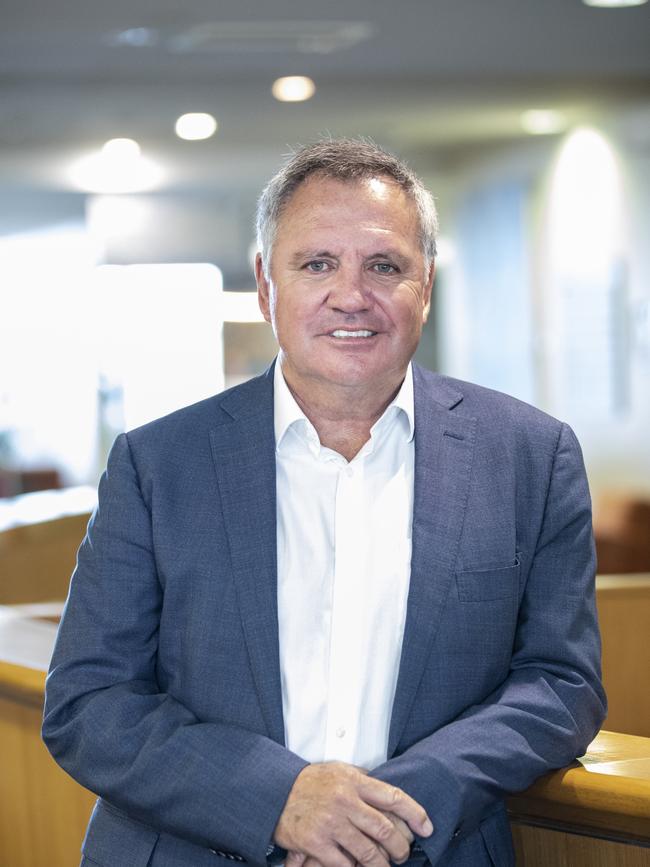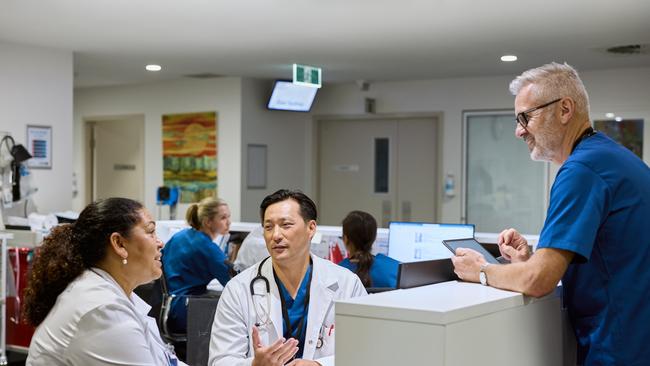Leadership under pressure: Now is the time to rebuild trust in public healthcare

Recent media coverage, including The Australian’s Life Support series, paints a confronting and sobering picture of the state of Australia’s public health system.
The stories of clinicians under duress, of whistleblowers silenced and of an escalating culture of fear demand our full attention – and, more important, our collective action.
Let’s be clear: the frustrations and concerns voiced by doctors, nurses and clinical leaders are not new. Neither are they misplaced. But the depiction of public health leadership as bureaucratically indifferent, adversarial or even punitive is only half the story, and it risks deepening the divide we all need to bridge if we are to secure the future of quality public care.
Clinicians and managers: not opposing forces but a fractured team
There is no public hospital in Australia that runs without the dedication of both its clinical staff and its administrative leaders. Yes, tensions exist. The system is under unsustainable pressure from chronic underfunding, rising complexity and workforce shortages.
But characterising this as a simple clash between “frontline truth-tellers” and “detached administrators” does a disservice to the many health executives who are themselves fighting for improved patient outcomes, better working conditions, safer staffing and system-level reform.

We cannot afford a narrative that pits doctors against leaders. That’s not only unhelpful, it’s also harmful. And it is way too simplistic to label healthcare managers as being opposed to high-quality healthcare for the sake of bringing in a budget or for doctors as the white knights out there being the only ones saving crippled hospital systems.
For years now many of us who are both doctors and managers have been attempting to say farewell to the expression that administrators and managers belong to the “dark side”, as if doctors and clinicians are the only ones concerned with patient welfare and good outcomes.
More than half of Australasian College of Health Service Management members are from clinical backgrounds (doctors, allied health workers and nurses), with about 300 members who are actually doctors. Many are in full-time leadership roles; others combine their ongoing clinical work with managerial roles.
Doctors and health leaders are not enemies – they are co-pilots trying to land the same storm-battered plane.
A safer, stronger leadership culture
As the national peak body for health service leaders, the ACHSM is working with our members, our partners and our clinical colleagues to:
• Champion leadership models that are collaborative, clinician-informed and values-led.
• Provide ongoing professional development that strengthens ethical decision-making, communication, and organisational integrity and competency.
• Support reforms in clinical and corporate governance that prioritise patient safety and workforce wellbeing over political performance targets.
• Foster safe mechanisms for staff to speak out without fear of retribution, and for leaders to listen and act with accountability in an environment of psychological safety.

A broken system needs structural renewal, not personal blame
As highlighted in the articles, the issues we face are structural, cultural and national. There are indeed instances of misused governance processes, poor communication and retaliation against those who speak up. These are unacceptable and ACHSM supports protections for all health workers who raise legitimate concerns.
But this is not a failing of individuals. It is a consequence of systems that have become increasingly reactive, politically constrained and disconnected from long-term clinical outcomes. What is needed now is not more finger-pointing but systemic reform grounded in partnership, transparency and mutual respect.
We acknowledge the pain, burnout and moral injury described in these reports. But we also know that leadership – when it is courageous, inclusive and future-focused – is a critical part of the solution.
Rebuilding trust, together
This is not the moment to entrench conflict. It’s the moment to rebuild trust.
That trust will not be restored by slogans or sweeping condemnations but by real conversations, shared decision-making and a recommitment to the values that bring people into healthcare in the first place: compassion, integrity and public service.
We at ACHSM stand ready to lead that change alongside every clinician, patient, administrator, politician and policymaker who shares the belief that Australia’s public health system is worth fighting for.
Dr Neale Fong is president of the Australasian College of Health Service Management





